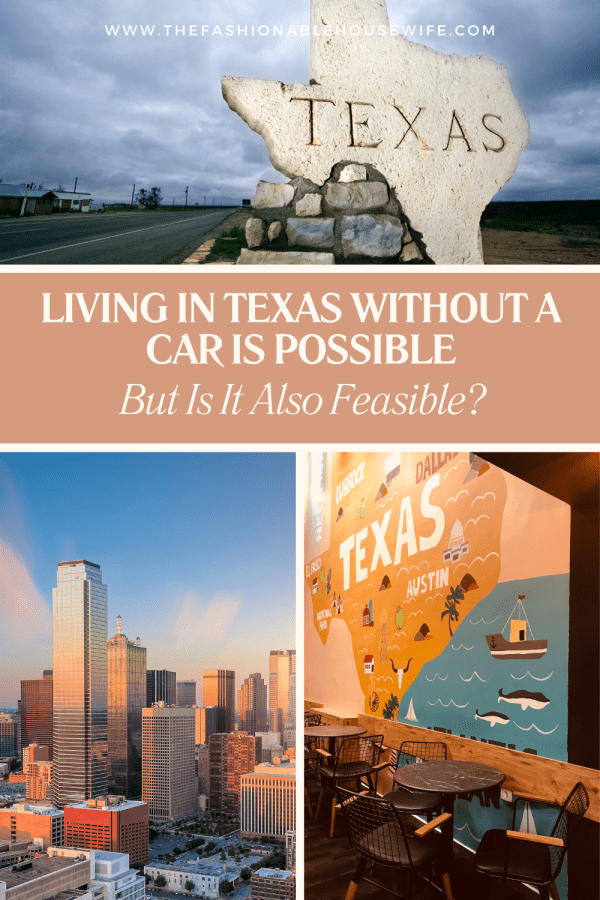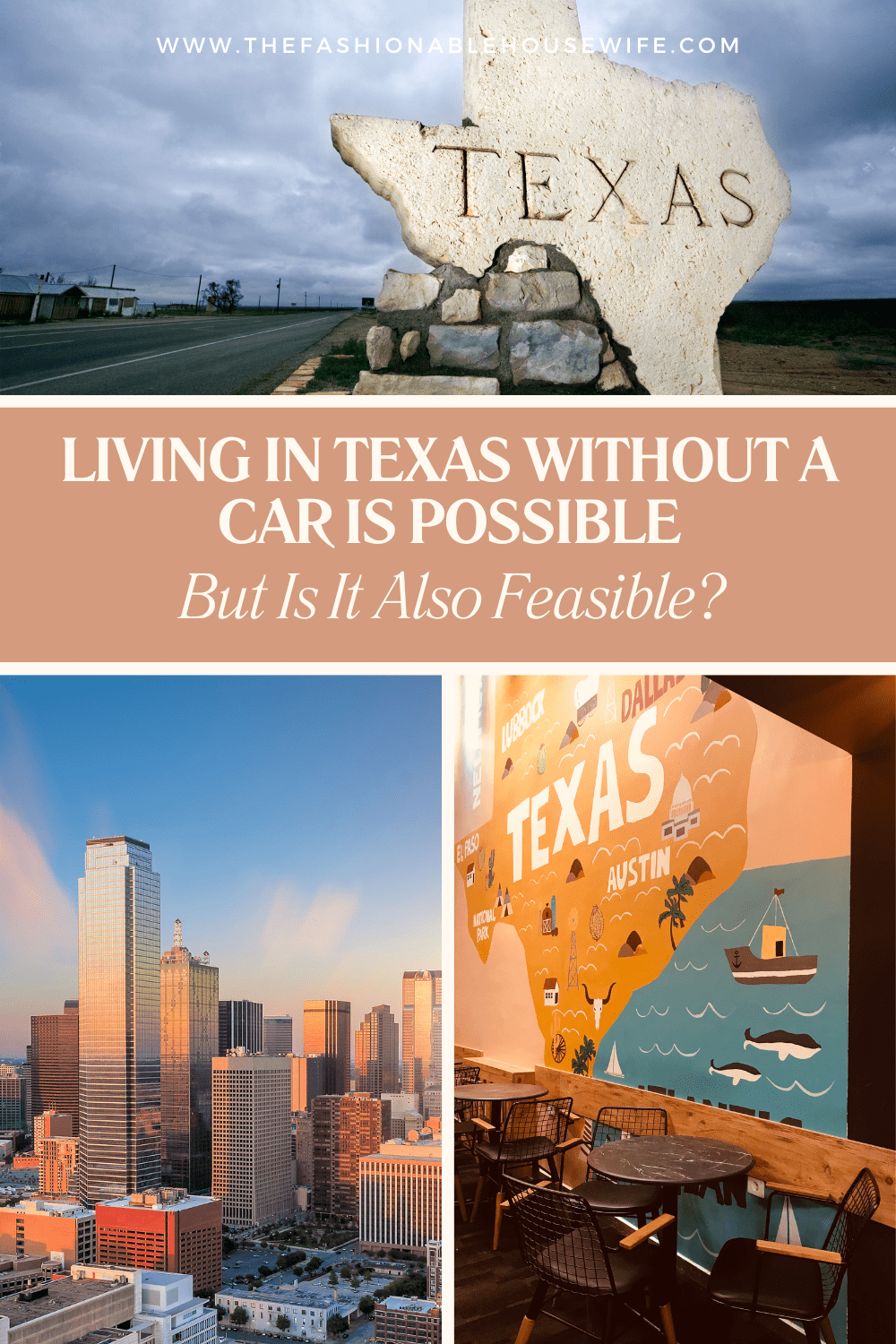Living in Texas Without a Car Is Possible: But Is It Also Feasible?

Texas is the second-largest state in the United States. Known for its sprawling farmland and bustling cities, it offers its citizens the best of both worlds. Most Texans believe access to reliable transportation is necessary, but can you live in the state without a car? You will need a way to commute to work, run errands, enjoy entertainment, or visit family and friends.
Many people are ditching their cars and going green in today’s eco-conscious society. What does this mean for Texans? Is it feasible to go carless in this expansive state?
Changing Landscapes
Texas has seen significant population growth over the last twenty years, prompting many citizens to realize the need for transportation. Companies like northside auto group san antonio can help buyers find the ideal vehicle to cross Texas’ busy streets.
As cities continue to expand in Texas, public transportation is growing significantly. Although many people consider transportation essential, some options go beyond car ownership. Texas Public Transit provides access to transportation in the most widely populated areas.
The city of Houston invested in a METRO rail system that covers over 90 miles and offers secure transportation for citizens. Even smaller towns, including Fort Worth and El Paso, are getting on board with providing transportation solutions. These transportation alternatives have helped citizens who do not own cars get around the state.
Public Transportation Is Evolving in Texas
Public transportation in Texas, like most states, continues to be a work in progress. Take heart if you do not own a car because the changing system will continue to offer more transportation choices in the future. Cities like the following are taking the initiative to provide safe transportation for their citizens.
Dallas
Dallas offers the Dallas Area Rapid Transit System (DART), one of the largest rail systems in the United States. The extensive network handles around 220,000 passengers daily and covers several areas, including Carrolton, Plano, and Dallas.
Houston
Houston operates the METRO system that offers public transportation to citizens in the city. METRO provides a bus system and rails. Although the transportation system is not as extensive as in Dallas, it is still far-reaching, giving transportation access to millions in the area.
San Antonio
San Antonio is another Texas city leading the way in transportation options. VIA Metropolitan Transport offers transportation options, though not on the same scale as Houston and Dallas. This service works perfectly for those who live downtown and near the areas they need to travel. VIA Metropolitan Transit is too slow for those with long commutes, though some citizens use it daily to travel to work.
Unfortunately, though strides are being made, these cities do not provide adequate transportation options outside urban areas. Rural areas are still vastly underserved, making car-free living more challenging for Texas citizens.
Walking and Biking Options
Cities across the state are creating walking and bike trails to help provide alternatives to driving. These paths provide safe access to downtown stores, restaurants, and entertainment venues.
Austin
Austin is known as one of the most bike-friendly cities in Texas. The city has a network of walking and bike trails and has introduced electric scooters and bike programs that help citizens move from one area to another.
Houston
Houston’s flat terrain makes biking easy. The city has recently added more bike paths, but much work still needs to be done. It is important to note that the city’s high temperatures and lack of shade can make biking and walking uncomfortable in the summer months.
Dallas
Dallas has always been more car-centric, but times are changing. Neighborhoods like Deep Ellum and Uptown are walkable, and the city invests in bike lanes and walking trails to encourage people to go green and ditch their gas-guzzling vehicles.
Walking and biking are solid city transportation options, but rural areas may not have access. With Texas’ sometimes extreme temperatures, walking and biking may be uncomfortable at certain times of the year. For some, car ownership is the only way to travel safely and comfortably.
Carless Cost of Living
Being carless may have its perks, but it can also impact the cost of living in Texas. Alternative transportation can become expensive, especially if you live outside the uptown areas. Although you do not have to worry about the cost of gasoline, registration, and insurance for a car, you will pay per month for METRO transportation, ranging between $40 and $100.
There are also costs associated with ridesharing, such as Uber and Lyft. Taxi services are also available but cost around $3 a mile in some areas. It is essential to factor in these costs before going carless.
You must also realize how going carless can impact your day-to-day life. How will you buy groceries and get them home? The cost of food and delivery services can be high and can increase your cost of living. Factoring in the potential costs will help you make an informed decision.
Is It Wise to Live in Texas Without a Car?
The feasibility of living in Texas car-free depends on where you live. Urban areas have plentiful transportation alternatives, but rural areas are often underserved, making going carless more complicated and expensive. Living in large cities will give you more access to transportation, but the costs can eat into your budget.
Walking, biking, ridesharing, buses, and rails are available in most public areas. Still, Texas’ climate may not make walking and biking accessible during the hot summer months when temperatures can rise into the triple digits.
Ideally, you should consider the best of both worlds. Car ownership offers privileges, allowing greater accessibility to the many Texas amenities. You can try to live a little greener by accessing public transportation when available.
While some Texas citizens may be able to go carless entirely, most will need a vehicle to supplement public transportation. If you are concerned about the environment, choose a fuel-efficient or electric car. Access to transportation is critical, no matter where you live in Texas.

